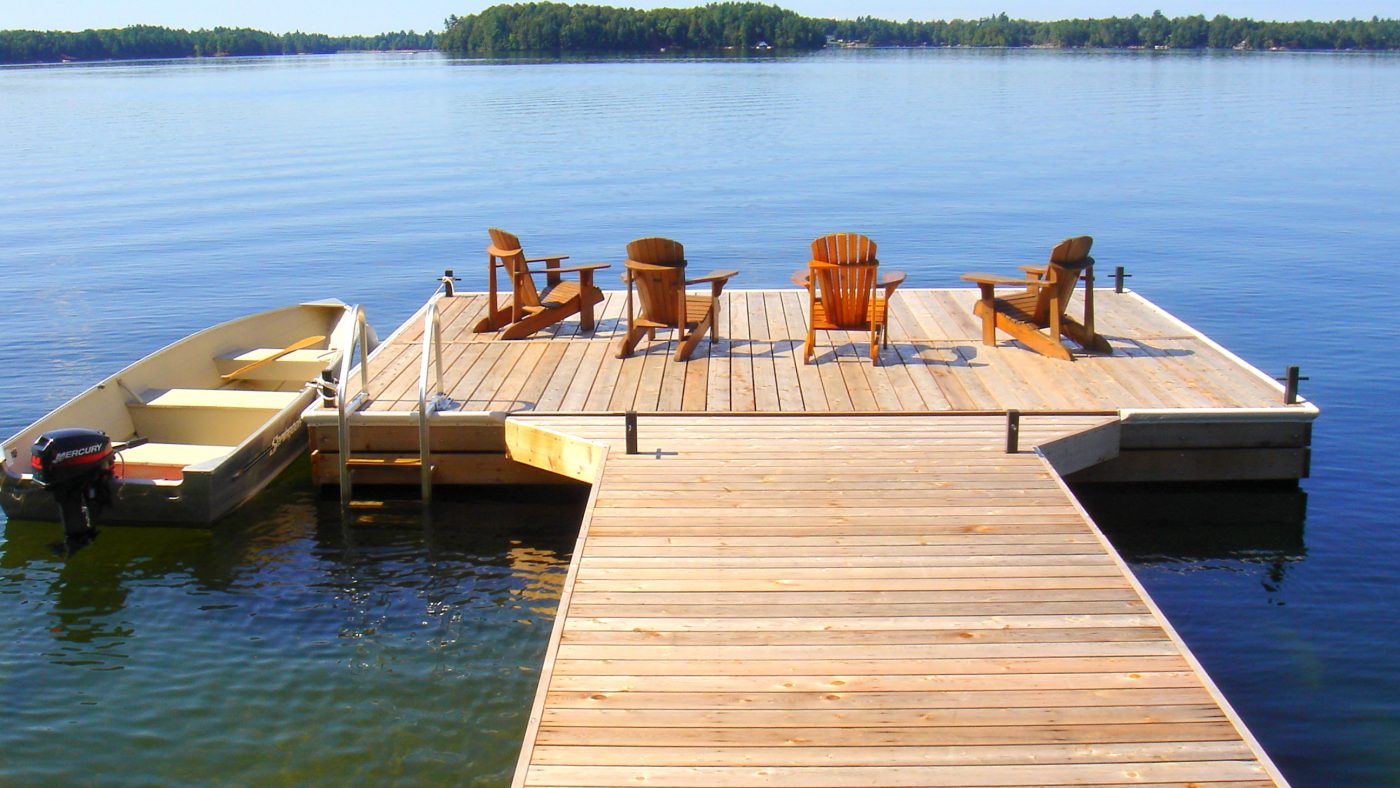Blog
Floating Vs. Stationary Docks
Floating Vs. Stationary Docks
Which one is best for you?
When it comes to deciding which type of boat dock to build you have 2 options: floating vs stationary dock systems. Each offers a variety of options and appearances. There are many difference between the two, which we will go into in this article.
The Differences
A floating dock floats on the surface of the water with the use of floats. There are a variety of options to use as floats, such as dock floats or even plastic barrels. Floating docks rest on the surface of the water. Stationary docks rest on top of pilings that are mounted into the seafloor. These docks sit above the surface of the water, which makes them more protected from the conditions.
Financials
Floating docks and stationary docks are priced quite differently. All dock builds are priced on what material is used for the construction. If you wanted to use composite wood as your decking your dock would run more expensive than a dock using standard treated lumber. Installation for a stationary dock is generally very pricey. You would need to hire a professional to drill your auger into the seabed of your dock. There have been a lot of new products available for floating docks, including dock kits that include all the hardware needed to build the entire frame.
Winner: Floating Docks
Longevity
A stationary dock generally will hold up better than a floating dock. This is simply because a floating dock is submerged in water the entirety of it’s installation. This makes the floating dock weather more quickly. This is especially true in salt water. However, there isn’t a great disparity between the two, as a stationary dock generally lasts 25-35 years and a floating dock lasts 20-30 years. With proper maintenance any dock can outlive it’s shelf life.
Winner: Stationary Docks
Maintenance
Maintaining each type of dock usually takes a similar amount of time. The type of material used is important for determining what type of maintenance one should do. Wooden docks need to be washed annual, preferably with a pressure washer, and have sealant applied. This is true for either stationary or floating wooden docks. For both type of docks it is very important to maintain the perimeter of your dock. Floating debris and algae can really damage the foundation of any dock. If you are using a metal dock, for example aluminum, you should lubricate regularly to prevent resting. Again, this is especially true in a salt water environment.
Winner: Stationary Dock
Water Bodies
For those that live in areas with a lot of through traffic by other boats, their wakes can have an affect on your dock. If there is high traffic a floating dock may not be the best choice. Since they float on the surface of the water, the wakes will cause the mounting hardware to wear faster than a stationary dock. However, a probably built floating dock with quality mounting materials, like this floating dock kit, would do well in such an area.
How deep the water where your dock is built is also important. This is for several reasons. A floating dock rises and falls with the water level. During low tide, the surface of the water can push back and this would leave your floating dock rubbing on the lake bed. This will greatly increase your chances for puncturing one of your dock floats.
If the water is too deep, a stationary dock will be extremely expensive for installation. A contracting crew would have to drill your mounting piles into the seabed, which will be pricey and difficult in deeper depths. This will also cause you to use longer piping to support your dock structure, which is not only more expensive, but is more likely to bend and wrap over time.
For these reasons, we feel that stationary docks would be better suited for shallow waters with a lot of other boater traffic. A floating dock is ideal for areas with steep breaks where deeper water is close to the coast line. However, this isn’t all that needs to be considered.
Winner: Split
Noise
There is a big difference between stationary and floating docks. Floating docks have hinged hardware, this is so it can float with the current and tide preventing strain on the parts. These parts are usually made of heavy duty steel and can be quite noisy in rougher seas. Over time, once the hardware starts to rust, it will be more prevalent. This can be combated with proper maintenance to keep your parts properly lubricated throughout the year. However, sitting on a floating dock has it’s benefits. If you enjoy the sound of the water and the nature feel of the tide, laying out on a floating dock might be just what you need.
Winner: Stationary Dock
Conclusion
We conclude that there is no real “winner” between floating vs station dock systems. Each has its own pro’s and con’s that have more to do with your environment than personal factors. Ultimately, you cannot go wrong with either type. As long as you properly maintain your dock and use quality parts, your dock will last for years to come.
Winner: Both
What are your thoughts on the floating vs station dock debate? Leave them in the comments section below.

